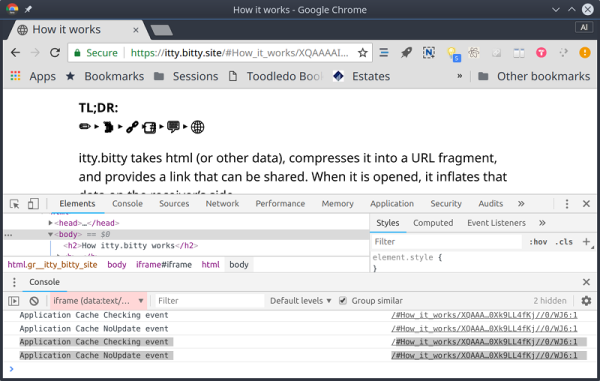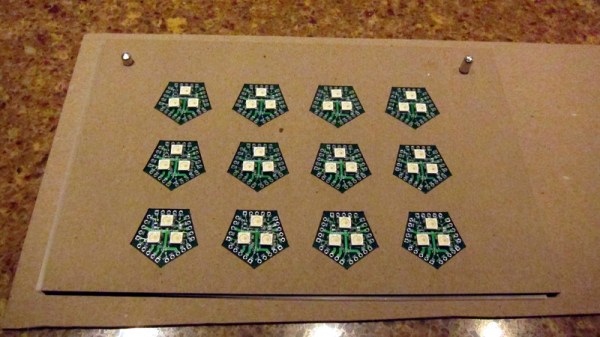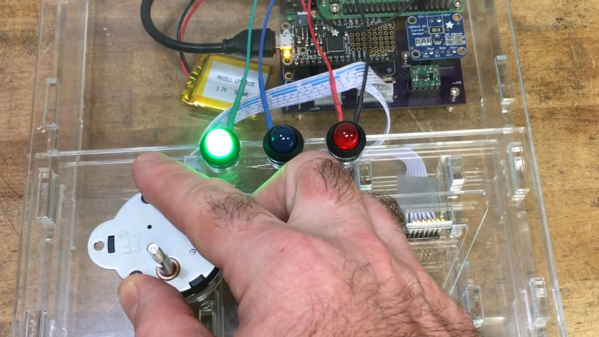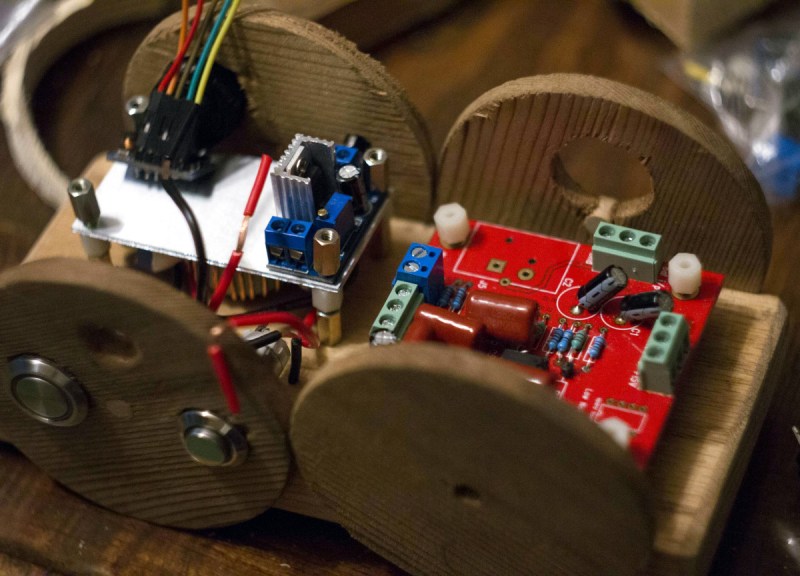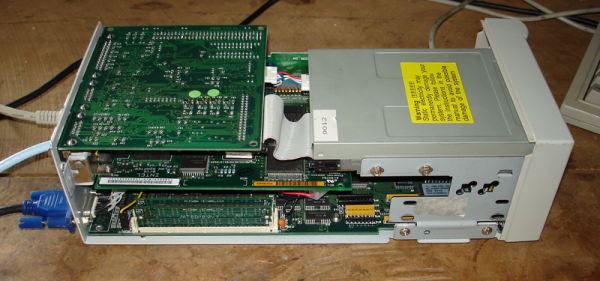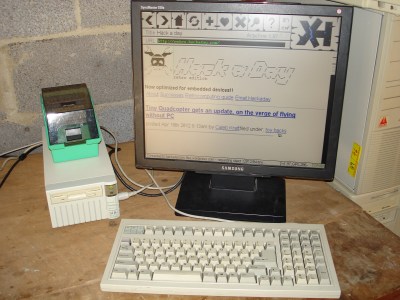A big trend in web services right now is the so-called serverless computing, such as Amazon’s Lambda service. The idea is you don’t have a dedicated server waiting for requests for a specific purpose. Instead, you have one server (such as Amazon’s) listening for lots of requests and on demand, you spin up an environment to process that request. Conceptually, it lets you run a bit of Javascript or some other language “in the cloud” with no dedicated server. https://itty.bitty.site takes this one step farther. The site creates self-contained websites where the content is encoded in the URL itself.
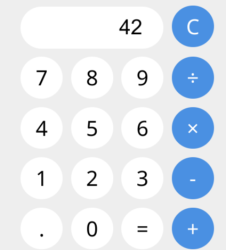 Probably the best example is to simply go to the site and click on “About itty bitty.” That page is itself encoded in its own URL. If you then click on the App link, you’ll see a calculator, showing that this isn’t just for snippets of text. While this does depend on the itty.bitty.site web host to provide the decoding framework, the decoding is done totally in your browser and the code is open source. What that means is you could host it on your own server, if you wanted to.
Probably the best example is to simply go to the site and click on “About itty bitty.” That page is itself encoded in its own URL. If you then click on the App link, you’ll see a calculator, showing that this isn’t just for snippets of text. While this does depend on the itty.bitty.site web host to provide the decoding framework, the decoding is done totally in your browser and the code is open source. What that means is you could host it on your own server, if you wanted to.
At first, this seems like a novelty until you start thinking about it. A small computer with an Internet connection could easily formulate these URLs to create web pages. A bigger computer could even host the itty.bitty server. Then there’s the privacy issue. At first, we were thinking that a page like this would be hard to censor since there is no centralized server with the content. But you still need the decoding framework. However, that wouldn’t stop a sophisticated user from “redirecting” to another — maybe private — decoding website and reading the page regardless of anyone’s disapproval of the content.

